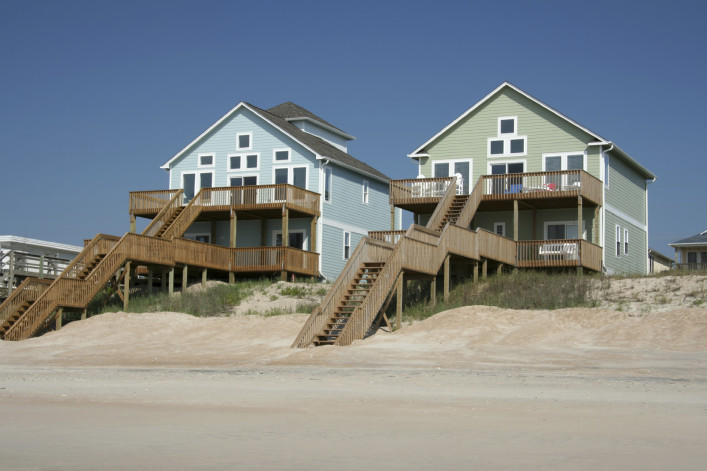Have a second home you rent out, or are an avid Airbnb-er? Find out which taxes you must pay and avoid an audit

Now that summer's coming to a close—say it isn't so!—it's a good time to take stock of your tax liabilities if you've rented out your home (outside or inside the city) the past few months. In fact, there are two types of taxes you should be paying: income tax and hotel taxes.
If you're renting your home for a short time, you may very well be expected to pay hotel occupancy taxes to your county, state or city (or some combination of the three).
Long-term rentals are exempt from hotel taxes, but what constitutes a long-term stay varies by state and city even. In New York City, for example, a short-term stay is anything less than 180 days. For the rest of New York state, 90 days is the cutoff. For Pennsylvania, anything over 30 days is considered long-term and therefore exempt from the hotel tax. Interestingly, New Jersey and Connecticut homeowners are completely exempt from hotel taxes.
Currently, Airbnb collects and remits taxes in about 15 locations, but not in New York. (In the tri-state area, only Philadelphia has Airbnb deductions.)
According to Rob Stephens, CPA and co-founder of Avalara MyLodgeTax, a web-based platform that automates tax calculations, hotel occupancy tax rates also vary widely based on geography.
In New York City, it's 5.875 percent. In the Poconos, for example, it's 9 percent, in Suffolk County is 3 percent. On average across the country, the tax rate is 11 to 12 percent, he says. Often, homeowners are expected to pay monthly or quarterly (not just April 15).
These taxes are not paid to the IRS, but rather to city, county and state governments. No matter who you pay taxes to, owners should be sure they're paying what's expected of them, says Stephens. Compliance is key to the long-term future of sites like Airbnb, he says.
And you could be caught. "These agencies can go onto rental websites to find people listing their homes. It is difficult for them to know how much tax people should be paying. These taxes are all self reported; it’s the honor system," he says. But, they have the ability to audit you to verify that you are paying the correct amount. "The audit and enforcement mechanism is what motivates people to file and pay the correct taxes."
And those aren't the only taxes coming your way. You're also expected to pay income tax on the money you made, as long as you've rented your home out for 15 days or more per year, says Jonathan Medows, a New York City certified public accountant.
You can deduct any expenses connected to renting, though: cleaning services, electricity used during guests' stays, and the like. Keep track of revenue, expenses and keep receipts, Medows says.
He says you should prepare to pay about one-third of the profit (minus deductibles) in taxes. Because of online platforms like VRBO, more people are getting audited for not reporting this type of income to the IRS. "The credit card company will issue a 1098-K and report the info to the IRS, and when the IRS matches your file, they will notice a discrepancy and issue a deficiency report."
In short, you play, you pay.
Related:
Tax deductions for NYC apartment owners (and renters!)
I'm renting out my condo. Should I form an LLC to save on taxes?


























